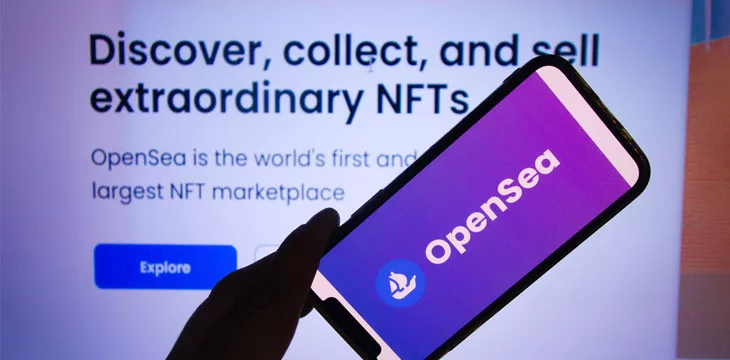
|
Getting your Trinity Audio player ready... |
In an April 18 court filing, a district court judge rules that the term “insider trading” can be used in the case against former OpenSea NFT employee Nathaniel Chastain, and sets a date for the trial.
Judge Jesse M. Furman of the United States District Court Southern District Of New York set April 24 as the date for the trial of Chastain, who is charged with wire fraud and money laundering relating to his purchase and sale of non-fungible tokens (NFTs) on online NFT marketplace OpenSea.
In the same filing, Judge Furman denied multiple motions from both the defendant and the government, including an attempt from Chastain to have the term “insider trading” excluded from trial, stating: “Chastain is accused of improperly using confidential, non-public (or ‘inside’) information about an asset to buy and then sell (or ‘trade’) that asset on a public market.”
For this reason, Chastain’s argument, voiced last September, that the term “insider trading” was “inflammatory, unduly prejudicial, and irrelevant to the crimes charged,” was described by Judge Furman as “moot.”
Chastain was indicted in June last year on allegations of insider trading during his time as head of product at OpenSea. As part of his job, Chastain was responsible for selecting NFTs to be featured on the site’s homepage. OpenSea kept the identity of featured NFTs confidential until they appeared on its homepage, and after an NFT was featured, the prices buyers were willing to pay for those NFTs typically increased substantially.
The government accused Chastain of abusing his knowledge of which NFTs would be featured on its homepage to secretly purchase dozens of NFTs shortly before they were promoted, between around June 2021 to September 2021.
“NFTs might be new, but this type of criminal scheme is not. As alleged, Nathaniel Chastain betrayed OpenSea by using its confidential business information to make money for himself. Today’s charges demonstrate the commitment of this Office to stamping out insider trading—whether it occurs on the stock market or the blockchain,” U.S. Attorney Damian Williams said of the charges at the time of the indictment.
The trial begins next week, and in his final pre-trial order, Judge Furman made short shrift of several other motions from both parties, denying Chastain’s motions: to exclude evidence and argument concerning the value of information to third-party purchasers; to exclude evidence and argument regarding compensation; and to exclude terms such as “level playing field”—the denial of this last motion allows the government to use the term when arguing that Chastain also committed the crime to obtain an advantage over other purchasers, who were not privy to the confidential business information.
Several government motions were also denied, but the Judge did grant its motions to preclude witnesses’ opinions about whether Chastain’s conduct constituted “insider trading” and another to preclude the argument that this case is novel or unprecedented.
Depending on the outcome of the trial, Chastain faces a potentially lengthy prison term, with one count of wire fraud and one count of money laundering, each carrying a maximum sentence of 20 years in prison.
Follow CoinGeek’s Crypto Crime Cartel series, which delves into the stream of groups—from BitMEX to Binance, Bitcoin.com, Blockstream, ShapeShift, Coinbase, Ripple,
Ethereum, FTX and Tether—who have co-opted the digital asset revolution and turned the industry into a minefield for naïve (and even experienced) players in the market.
Recommended for you
Lorem ipsum odor amet, consectetuer adipiscing elit. Elit torquent maximus natoque viverra cursus maximus felis. Auctor commodo aliquet himenaeos fermentum
Lorem ipsum odor amet, consectetuer adipiscing elit. Accumsan mi at at semper libero pretium justo. Dictum parturient conubia turpis interdum

 11-21-2024
11-21-2024


